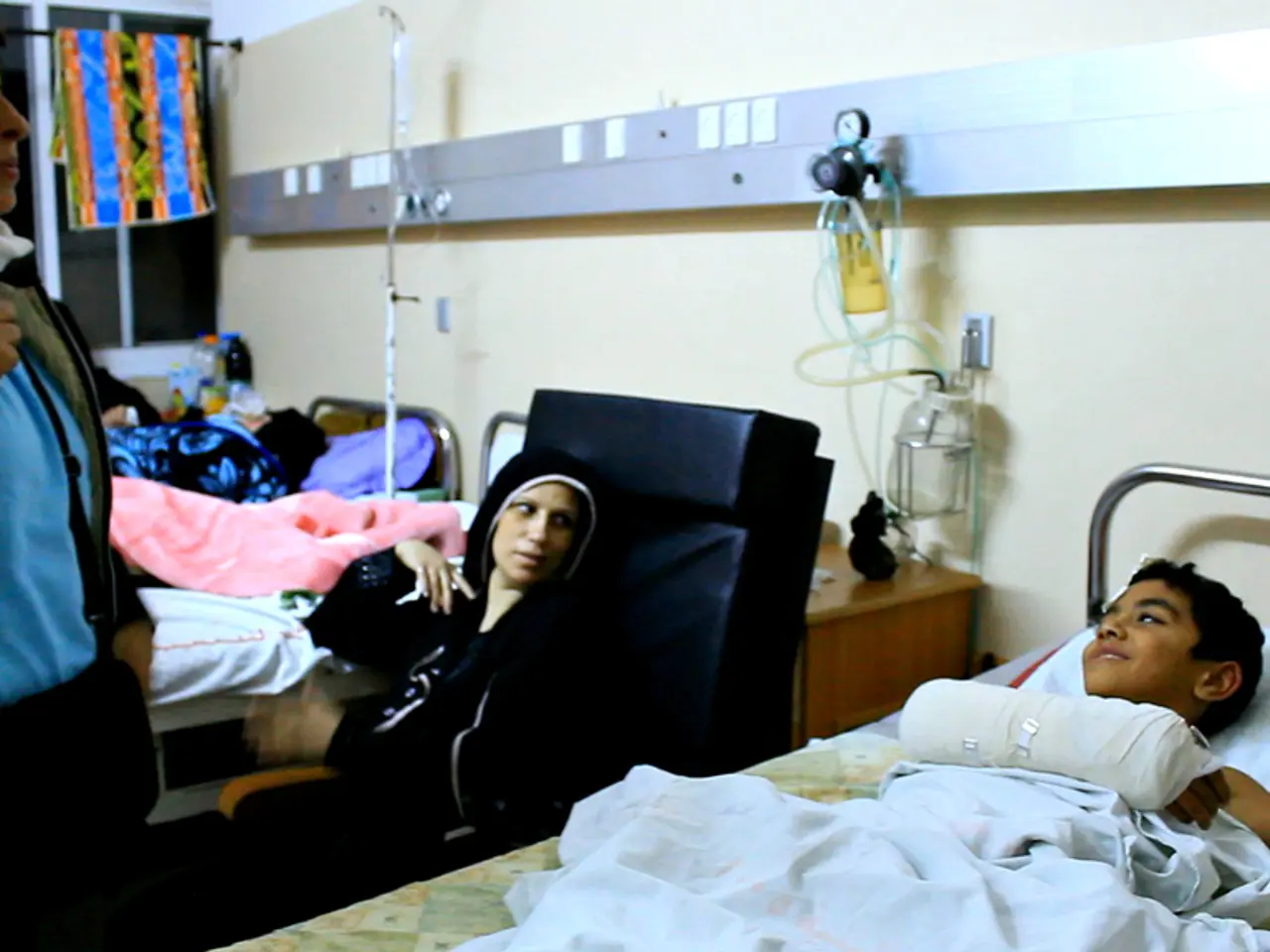Redistributed responsibilities, innovative patient management methods - Revised patient task allocation leads to fresh patient journeys
In Rhineland-Palatinate, a significant shift in hospital services is underway, driven by the challenges of hospital reform, the need for improved interdisciplinary care networks, and resource pressures including staffing and infrastructure capacity.
At the heart of this change is the University Medical Center Mainz, led by CEO and Medical Director Ralf Kiesslich, who supports these reforms. Kiesslich mentions that discussions are ongoing about the outpatient services the hospital will offer in the future, focusing on oncological patients and chronically ill people with complex, especially immunological diseases. He anticipates an increase in outpatient treatment in cardiology and gastroenterology in the coming years.
One of the key reasons for this shift is the demand for interdisciplinary coordination. The upcoming hospital reform in Germany emphasizes better integration of care across disciplines to improve patient outcomes, as highlighted in initiatives like the University Cancer Center Hamburg’s emphasis on interdisciplinary networks for cancer care.
Another factor is economic and efficiency considerations. Technological innovations, such as AI-enabled monitoring, suggest a trend towards cost-effective patient management that may reduce hospitalizations and optimize resource use. Clinics and outpatient practices may see an increased role in continuing care and follow-up management, particularly after hospital discharge, as in aftercare programs for cancer survivors. More comprehensive task shifts might occur, transferring some responsibilities traditionally managed by hospitals to ambulatory or specialized outpatient settings to alleviate inpatient loads and improve efficiency.
However, not everyone is in agreement. Gerald Gaß, President of the German Hospital Society from Rhineland-Pfalz, is critical of the Hybrid-DRG system, which pays the same for inpatient or outpatient treatment for conditions like a groin hernia. He believes that a uniform remuneration for outpatient and inpatient services is a misrepresentation of unequal supply realities and will lead to perverse incentives.
Andreas Bartels, Vice-Chairman of the Association of Statutory Health Insurance Physicians (KV) Rhineland-Palatinate, on the other hand, supports outpatient treatment. He suggests that treatment paths could be redesigned through collaboration between hospitals and outpatient services, potentially leading to a distribution of patient volume and case severity among hospitals.
The integration of the outpatient and inpatient sectors is a topic of discussion in Germany, with the aim of making the partly independent systems more permeable. As Kiesslich notes, the difficulty in integrating these sectors due to their independence makes this a complex task, but he predicts a new pattern of care will emerge, both nationwide and in Rhineland-Pfalz.
In conclusion, these changes aim to address efficiency, capacity, and quality of care challenges, driving closer cooperation between hospitals, clinics, and outpatient services in Rhineland-Palatinate and Germany as a whole. While there are challenges to be overcome, the potential benefits in terms of improved patient care and cost savings make this a necessary and exciting development in the healthcare sector.
[1] University Cancer Center Hamburg. (n.d.). Interdisciplinary Networks for Cancer Care. Retrieved from https://www.unicancer.de/en/research/research-groups/interdisciplinary-networks-for-cancer-care/ [2] Parkinson’s Disease Foundation. (n.d.). AI in Parkinson's Disease. Retrieved from https://www.pdffoundation.org/understanding-parkinsons/treatment/ai-in-parkinsons-disease
In the context of hospital reform and resource pressures in Rhineland-Palatinate, there is a growing focus on vocational training for health professionals, as improved interdisciplinary care requires skilled team members. This shift towards collaboration and specialized outpatient services, as highlighted in initiatives like the University Cancer Center Hamburg’s emphasis on interdisciplinary networks for cancer care, could benefit from science-based training to ensure the delivery of high-quality care.
Additionally, with a predicted increase in outpatient treatment in areas like cardiology and gastroenterology, promoting health-and-wellness through vocational training in these sectors could support efficient patient management and improve outcomes, particularly through the use of advanced technologies like AI-enabled monitoring, as suggested by innovations in Parkinson's disease treatment.




